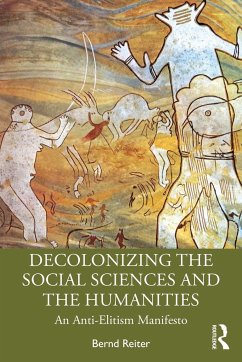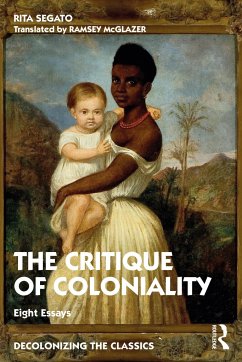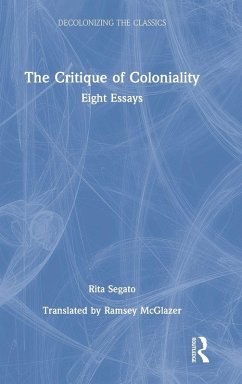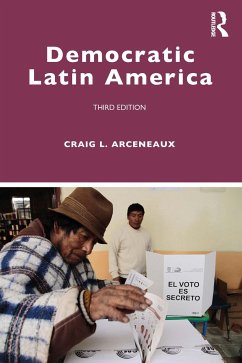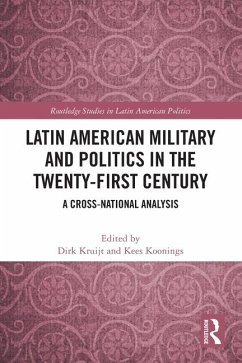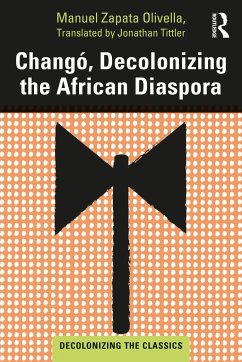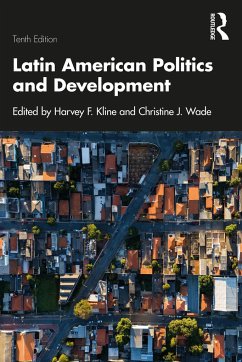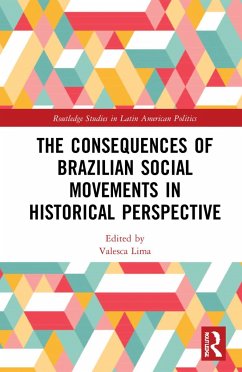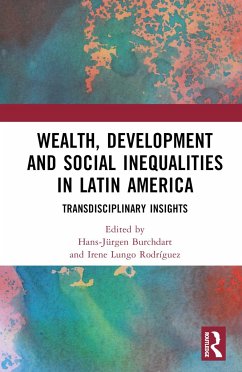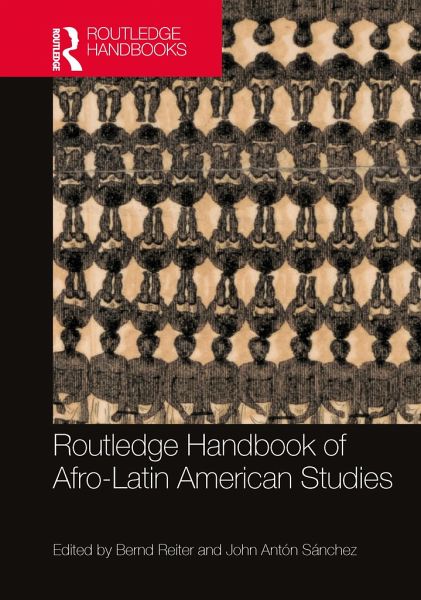
Routledge Handbook of Afro-Latin American Studies
Versandkostenfrei!
Versandfertig in 6-10 Tagen
225,99 €
inkl. MwSt.

PAYBACK Punkte
113 °P sammeln!
This Handbook provides a comprehensive roadmap to the burgeoning area of Afro-Latin American Studies.Afro-Latins as a civilization developed during the period of slavery, obtaining cultural contributions from Indigenous and European worlds, while today they are enriched by new social configurations derived from contemporary migrations from Africa. The essays collected in this volume speak to scientific production that has been promoted in the region from the humanities and social sciences with the aim of understanding the phenomenon of the African diaspora as a specific civilizing element. Wit...
This Handbook provides a comprehensive roadmap to the burgeoning area of Afro-Latin American Studies.
Afro-Latins as a civilization developed during the period of slavery, obtaining cultural contributions from Indigenous and European worlds, while today they are enriched by new social configurations derived from contemporary migrations from Africa. The essays collected in this volume speak to scientific production that has been promoted in the region from the humanities and social sciences with the aim of understanding the phenomenon of the African diaspora as a specific civilizing element. With contributions from world-leading figures in their fields overseen by an eminent international editorial board, this Handbook features original, authoritative articles organized in four coherent parts:
- Disciplinary Studies;
- Problem Focused Fields;
- Regional and Country Approaches;
- Pioneers of Afro-Latin American Studies.
The Routledge Handbook of Afro-Latin American Studies will not only serve as the major reference text in the area of Afro-Latin American Studies but will also provide the agenda for future new research.
Afro-Latins as a civilization developed during the period of slavery, obtaining cultural contributions from Indigenous and European worlds, while today they are enriched by new social configurations derived from contemporary migrations from Africa. The essays collected in this volume speak to scientific production that has been promoted in the region from the humanities and social sciences with the aim of understanding the phenomenon of the African diaspora as a specific civilizing element. With contributions from world-leading figures in their fields overseen by an eminent international editorial board, this Handbook features original, authoritative articles organized in four coherent parts:
- Disciplinary Studies;
- Problem Focused Fields;
- Regional and Country Approaches;
- Pioneers of Afro-Latin American Studies.
The Routledge Handbook of Afro-Latin American Studies will not only serve as the major reference text in the area of Afro-Latin American Studies but will also provide the agenda for future new research.




